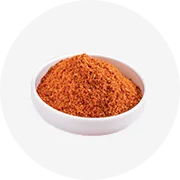


















Refined sugar is a staple ingredient found in numerous food products, known for its ability to enhance flavor and extend shelf life. This category of sugar is processed to remove impurities and natural molasses, resulting in refined white sugar that is commonly used in both commercial and home cooking. The process of refining not only alters the texture and color but also the taste, providing a neutral sweetness that is versatile in its use.
The market offers a variety of refined sugar types, each suited to different culinary applications. From superfine caster sugar, ideal for dissolving quickly in beverages and meringues, to the coarser granulated sugar, perfect for creating volume in baked goods. Other forms include confectioners' sugar, known for its powdery texture, and various shades of brown sugar, which contain different levels of molasses, offering a deeper flavor profile.
Refined sugar is integral in creating the texture and taste of countless refined sugar foods. It is a key ingredient in confectionery, baked goods, and beverages, providing not just sweetness but also contributing to the preservation of these products. In baking, sugar aids in the caramelization process and can influence the color and moisture content of the final product. Moreover, specialty sugars, such as those infused with espresso or chili, can add a unique twist to traditional recipes.
When selecting refined sugar, the source and processing method can impact the final product's quality. While unrefined sugar retains more of the sugarcane's natural molasses, refined sugar is treated to achieve a purer state. However, this does not imply that all refined sugars are the same. Factors such as crystal size and the presence of additives can vary, influencing how the sugar behaves in different culinary scenarios.
The advantages of using refined sugar in food production are manifold. Its ability to act as a preservative by inhibiting microbial growth extends the shelf life of many products. Additionally, refined sugar can improve the texture of foods, contributing to a desirable mouthfeel. For those looking to cut out refined sugar, it's important to note that there are alternatives available, such as foods without refined sugar, which can be incorporated into a no refined sugar diet.
For businesses and consumers aiming to make informed choices, Alibaba.com presents a diverse selection of refined sugar options. Whether the need is for bulk quantities for large-scale food production or smaller packages for artisanal baking, the platform connects buyers with a variety of suppliers. It's essential to consider the specific requirements of your food preparation or manufacturing process when selecting the appropriate type of sugar, keeping in mind the desired outcome in terms of flavor, color, and texture.